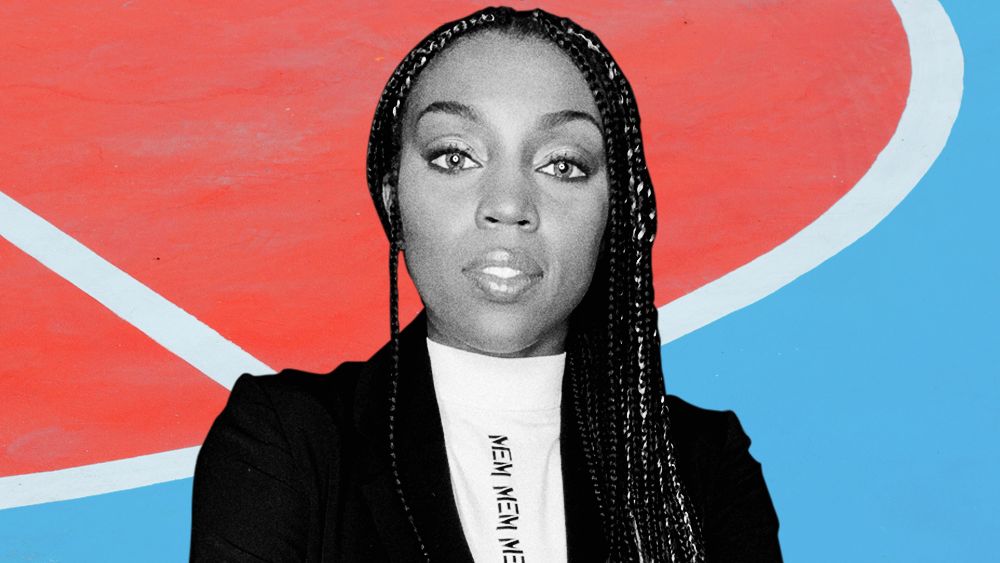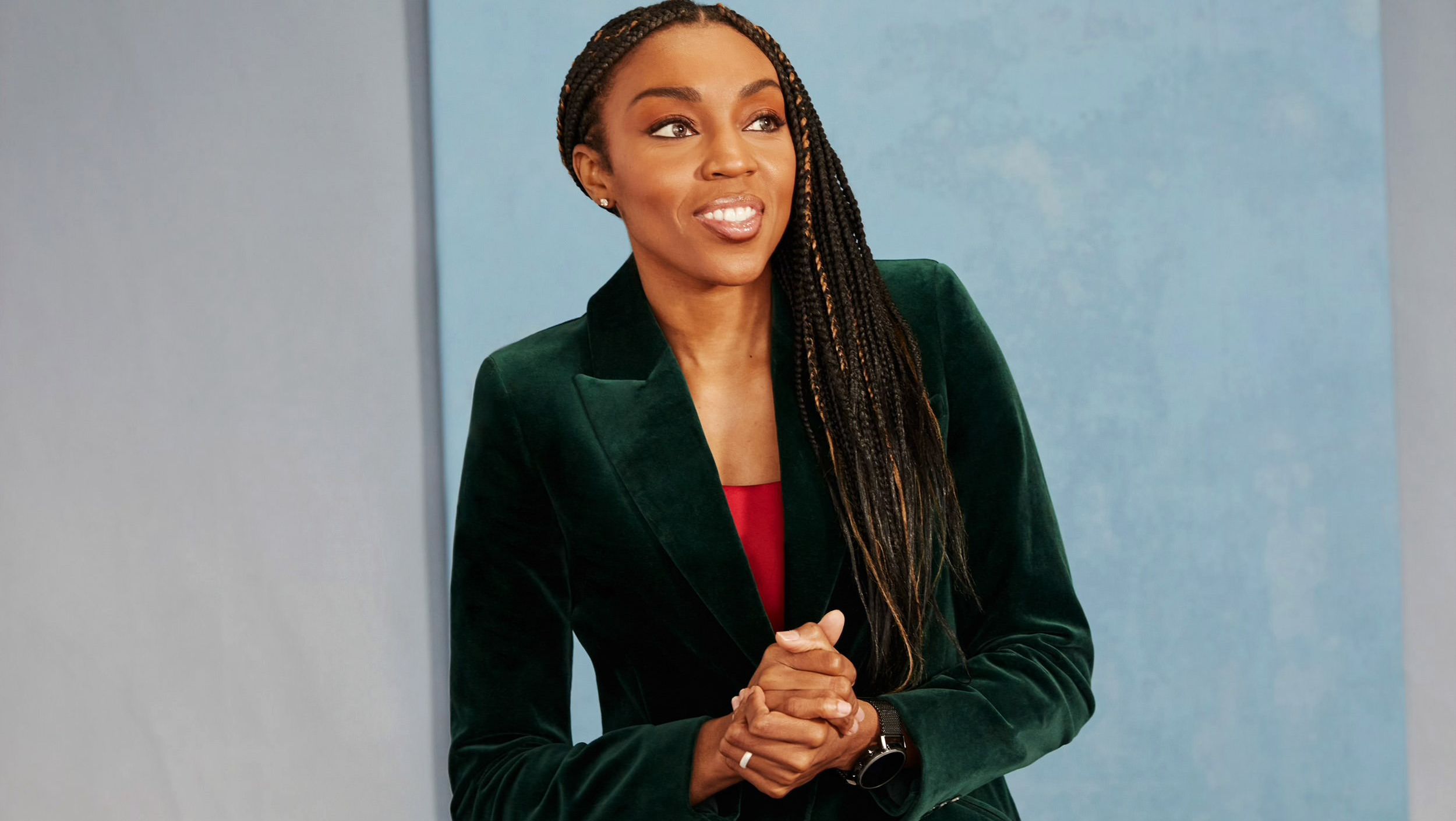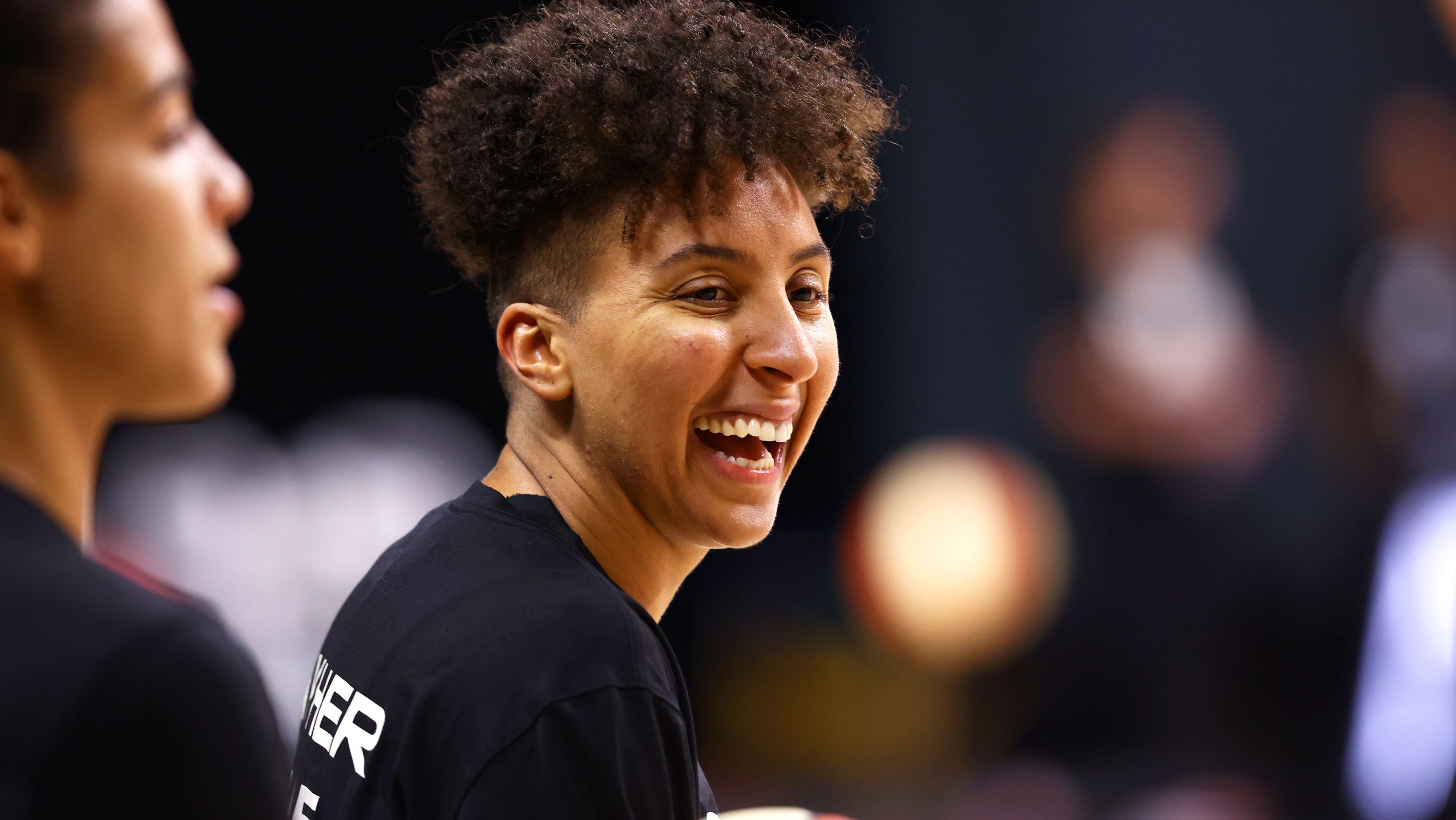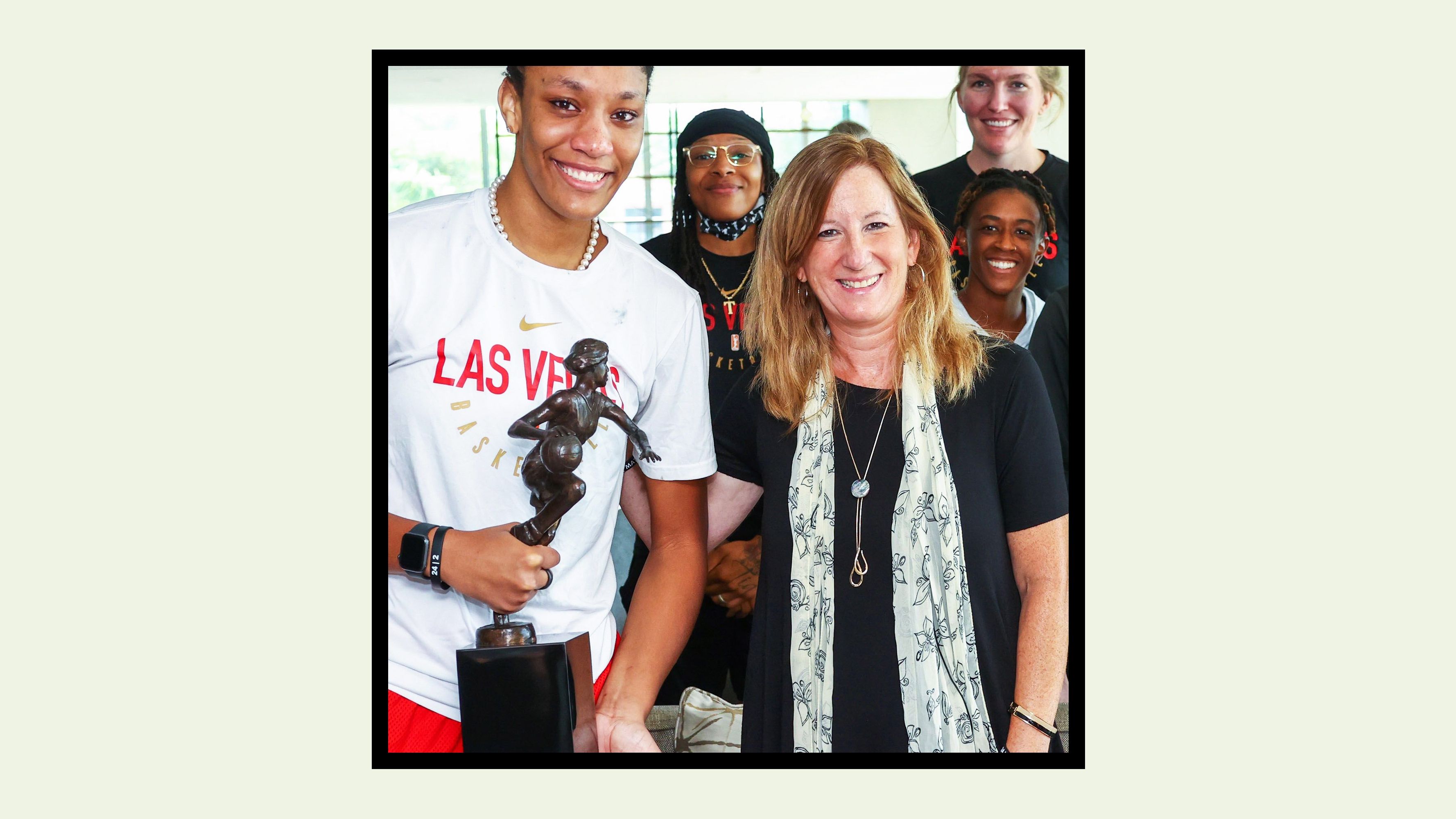Renee Montgomery Got Her (Atlanta) Dream—Now It's Time to Get to Work
With the league's 25th season underway, the former WNBA player is ready to lead the Dream into its next chapter.


Before we hung up the phone, Renee Montgomery shouted out a list of names of people who have supported her—kind of like when an awards-show winner studies her trophy adoringly as she remembers who to thank for where she stands today.
Because Montgomery is a winner.
Within less than a year, the 34-year-old WNBA star opted out of the 2020 season, retired from an 11-year professional career, and became co-owner and vice president of the WNBA's Atlanta Dream. As racial protests ignited across the country last summer, Montgomery knew there were names that deserved her full attention—names like George Floyd, Breonna Taylor, and Ahmaud Arbery—and she decided to fully dedicate herself to the fight for social justice.
"I'm one of those people that I'm either in or I'm out. I didn't want to be half in on the WNBA and on my team because half of me wanted to be supporting the cause," says Montgomery, who announced she would opt out of the season in June 2020. "So, I made the decision to just go all in and see what momentum we could create."
That led to Montgomery teaming up with Lebron James's More Than a Vote, working tirelessly in Georgia to get people registered to vote. She also created her own nonpartisan voter registration campaign, "Remember the 3rd" (referring to the November 3, 2020 presidential election), through the Renee Montgomery Foundation, which she launched in 2019. The campaign's purpose was to educate people on local, state, and national electoral processes.

Renee Montgomery
While committed to her social justice work, Montgomery remained focused on another goal: to make an impact on the sport she loves. She realized that one big way her leadership could influence the league and its players was as a team owner. There are a small number of athletes-turned-owners, let alone women athletes-turned-owners, but the same thought kept coming back to the two-time WNBA champion: Why not me? Now, it was time to figure out how to make it happen.
Despite James's very public tweet in January 2021 expressing interest in organizing an ownership group of the Atlanta Dream, Montgomery had already been having conversations with some venture capitalists about what she was trying to do as far back as October. When then-co-owner of the Atlanta Dream, Kelly Loeffler, lost her U.S. Senate race in the Georgia runoff elections after her own team campaigned against her, the path became even clearer. James's tweet may have helped ramp up ownership conversations, but the choice would ultimately come down to one woman: WNBA Commissioner Cathy Engelbert.
Get exclusive access to fashion and beauty trends, hot-off-the-press celebrity news, and more.
"She was the one that helped orchestrate the whole thing," says Montgomery. "There were times where I'm trying to get connected and she's the one that was connecting me to different people. I remember the first time I talked to her and she was like, 'You know, you do understand that you can't be an active player and be an owner.' And I was like, 'Yeah, Cathy, I get that. So I just want you to know I'll retire because I'm that serious about it.' And then once that happened, she was like, 'Okay. Well, I'm going to connect you to the right people.'"
I'm one of those people that I'm either in or I'm out.
That connection led Montgomery to her future Dream co-owners, Larry Gottesdiener and Suzanne Abair. Montgomery announced her retirement on February 9, and officially became part-owner and vice president of the Atlanta Dream on February 26 after Loeffler and her co-owner sold the team to Montgomery's three-person investor group. Though it may have seemed like a quick turnaround, Montgomery wants people to know this didn't happen overnight. In fact, Montgomery had already been making moves when she became part-owner of the Fan Controlled Football (FCF) Beasts team in January—always bringing that athlete-slash-business-woman everywhere she goes.
"It's a long process. It's not just a, 'Hey, I want to be an owner. I put in my bid and I win.' You have to be approved by the league. There's a board that you have to be approved by," explains Montgomery.
Now, with the WNBA's landmark 25th season tipping off May 14, Montgomery will begin her first season off the court and in the boardroom (okay, well, not totally off the court...she's going to be cheering on the sidelines!), leading the Atlanta Dream into its next chapter. Ahead, the West Virginia native chats with Marie Claire about going from player to owner, her goals for the Dream, and how she plans to influence the league as a whole.
Marie Claire: What is it like transitioning from a player to an owner? Do you feel a different type of responsibility to your team?
Renee Montgomery: I feel like I have a different insight. Even as meetings are happening and ideas are getting thrown around, I'm always going to be a player. I'm always going to be an athlete. So I think about things in the meetings of, how would the players feel about that? Or, if I were a player, would I enjoy this? And so that's kind of how I move as my role in the Atlanta Dream. I always want to keep the players first and keep the organization first. So, how will people receive this? Is this the right angle? Is this Atlanta? We want to be a part of the Atlanta fabric. Things that I thought as a player, I bring that to the boardroom.
MC: What does it mean to lead this team as a co-owner, especially as a Black woman?
RM: It's everything to me. I take it seriously because I understand the magnitude of it. Not meaning the position that I'm in, but where this could go for other former athletes, women, Black women, men, any athlete. All of upper management in sports should have at least 50 percent of former players because who else would take better care of a brand that they gave their life to than a former athlete? As athletes, we grow up thinking about making it big and making it to the pros. So, once we've fulfilled our dream and played in the pros, of course we want to continue that legacy and have other little girls look up to us and want to play in the WNBA. Then, maybe one day they want to be a vice president or an owner. I take that role very seriously.
MC: What are your goals for the team both basketball-wise and activism-wise for the 2021 season?
RM: We talk a lot about the business aspect of things and even the social activism, but one thing that I'm super excited about is the on-court performance. We actually have a really talented team and I'm excited to see how Coach Nicki and the coaching staff put them together because we have the talent. [Editor's note: On May 3, Coach Nicki Collen announced she's leaving the WNBA to coach at Baylor University.] Now, it's about building the chemistry and making the team a competitive opponent.
I'm excited. I'm like a kid in a candy store. I really feel like I'm going to be the Mark Cuban type, the Steve [Ballmer] type over at the Clippers. Like, I'm all in. I'm going to be cheering on the sidelines. I'm going to be hyping the players up. Some nights, I'm going to just be enjoying the ride, but basically I'm going to be there and I'm going to be in tune.
When I spoke to the team I told them in Sports we always have a next man up mentality and usually we preach it to players but this time the Coaches will lead by example. The mission is still the same and the squad is still lit 🔥 See you May 14 📍 #MEMMay 4, 2021
MC: I saw the team selected Arizona's Aari McDonald, which is really exciting.
RM: Big time. Yeah. When we're trying to build a culture here, and it's already started, you can't go wrong adding a player like that to what you're trying to build because she's going to bring the heart and she's going to bring that fire that we want to have here and we do have. So, she'll be a great addition.
MC: Have you had any conversations with the players that have stood out to you over these past couple of months? Just in terms of what they'd like to see or what it means for you to be in this leadership position? Your friends and family must be so proud of you.
RM: It's so humbling and it almost gets uncomfortable because it's people that I used to be like, "Yo, what up homie?" And now they're talking to me like I'm inspiring them. There's no other way to describe it than it's just been humbling to see people's reactions to me and how they talk to me and how you can just tell that people are proud of the moves I'm making. That's why I do take this role so seriously. Because I want to do it well so that I make people more proud and let people understand that athletes have a resume. The things that we've done during our career should be work experience. And I'm not an outlier. I think there are a lot of athletes that could fulfill executive roles and ownership roles.
MC: Ownership is a huge deal. What do you think instilled this confidence in you to just be like, "Hey, I'm going to do this?"
RM: I dream big. I've always dreamed big. When you grow up in West Virginia and you're dribbling on a dirt road and you dream of going to a major D1 school, you have to have an imagination about yourself. I pretty much always tried not to limit what I think I can do. And if somebody tells me "no," then they just tell me "no." But I've always just shot for the stars, and I think my parents have instilled that in me. Even with one of my sisters, she used to always say when we were young that she wanted to be a doctor. And my parents used to always tell her, "Well, then, you're going to be a doctor." And now my sister's a doctor. That type of confidence is built through family. And it started at a young age because I believed at a young age that I was going to be able to go to a big D1 school and I ended up going to UConn. Then I believed that I could play in the WNBA. Even though no one from West Virginia had done either of those things when I was young, I still believed it.
All of upper management in sports should have at least 50 percent of former players because who else would take better care of a brand that they gave their life to than a former athlete?
MC: How do you plan to influence the league as a whole?
RM: We want to be the north star of the league in a sense of having best practices. We want to have best practices when it comes to on the court and we want to have best practices in business. We want people to see what we're doing and understand that we're investing in the Dream. We're investing in the WNBA because we see the value of it. I think that players will play better and the city will receive us better when they see that we take us seriously.
Even the way we go about doing business, we want to make sure that we are attentive when we're hiring. So we're looking at minority-owned businesses. We're looking at small businesses. We're looking at women-led businesses. We're also looking at foundations. How can we make an impact by empowering these people and empower people by employing them? We're very focused on not only just being a great organization, but being morally grounded as well.
MC: The WNBA has been getting a lot of attention over the past year for its commitment to social justice issues, dedicating the 2020 season to Breonna Taylor and the Say Her Name campaign. But the players had been doing the work long before. What do you want people to know who may have been sleeping on the league and its players?
RM: It's time to wake up. There are a lot of different things going on in the WNBA and I know that everyone can feel it. Women's basketball, women's sports, it's on the rise. If you don't notice, then you're not paying attention. Nothing's changed about women's basketball. It's always been great. It's just now people are more engaged and the platforms are growing. The brands are attaching themselves, the networks are giving more airtime. And when you get all of those people buying in, of course things are going to grow. I'm excited for where we are and where we're going.
This interview has been lightly edited and condensed for clarity.
The WNBA's 25th season begins on Friday, May 14. View the full schedule here.
RELATED STORIES


Rachel Epstein is a writer, editor, and content strategist based in New York City. Most recently, she was the Managing Editor at Coveteur, where she oversaw the site’s day-to-day editorial operations. Previously, she was an editor at Marie Claire, where she wrote and edited culture, politics, and lifestyle stories ranging from op-eds to profiles to ambitious packages. She also launched and managed the site’s virtual book club, #ReadWithMC. Offline, she’s likely watching a Heat game or finding a new coffee shop.
